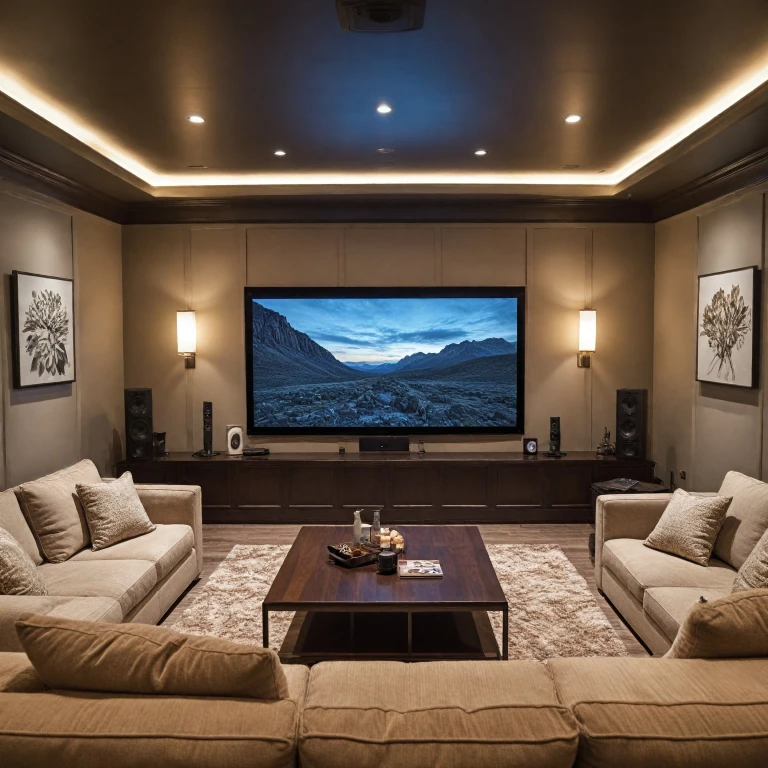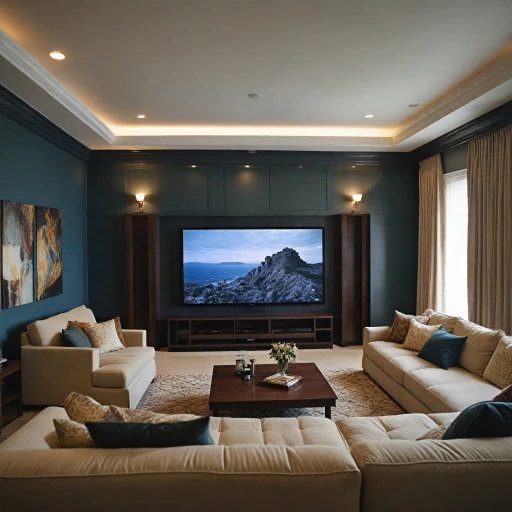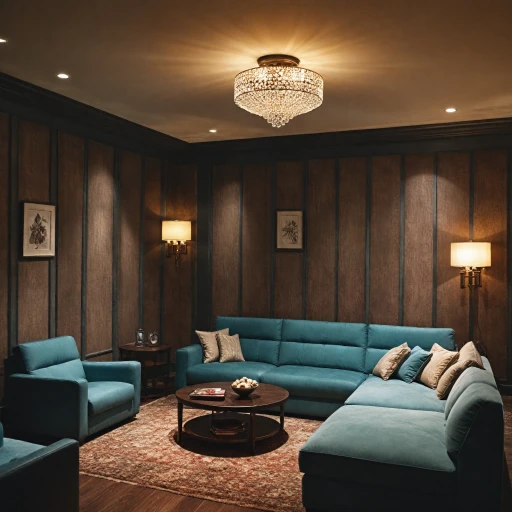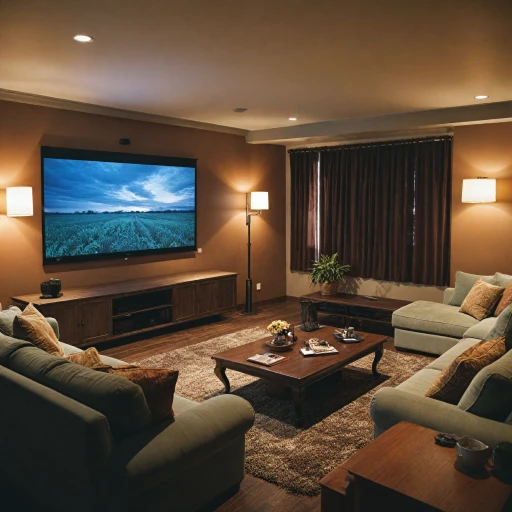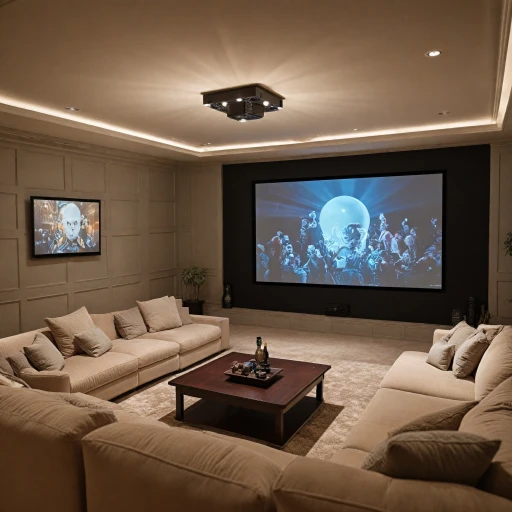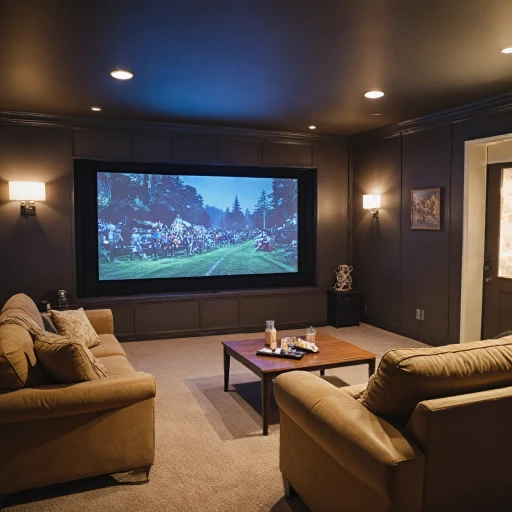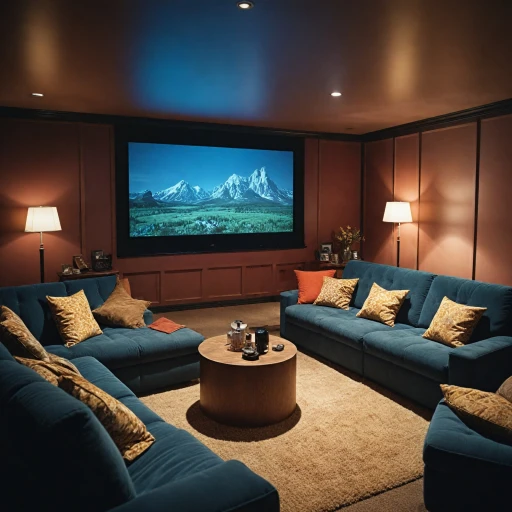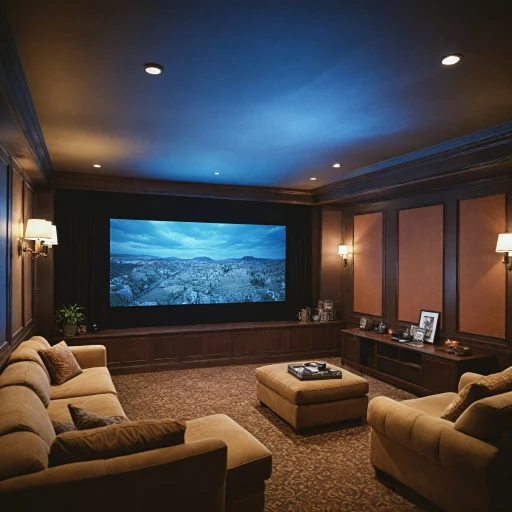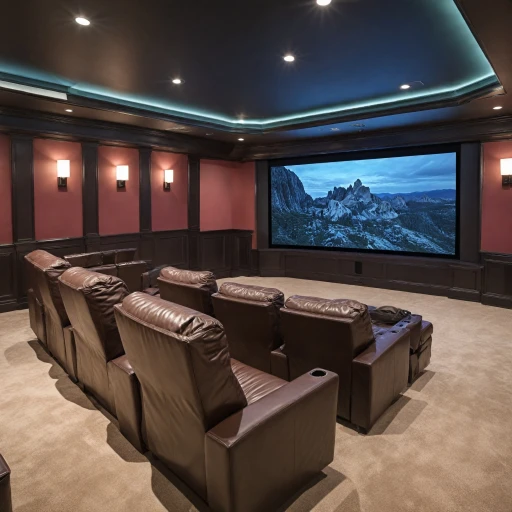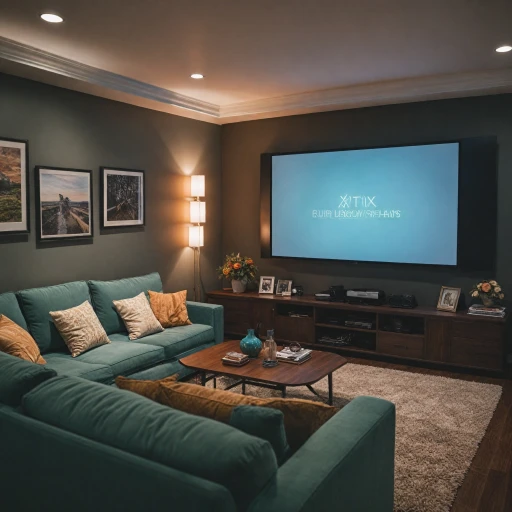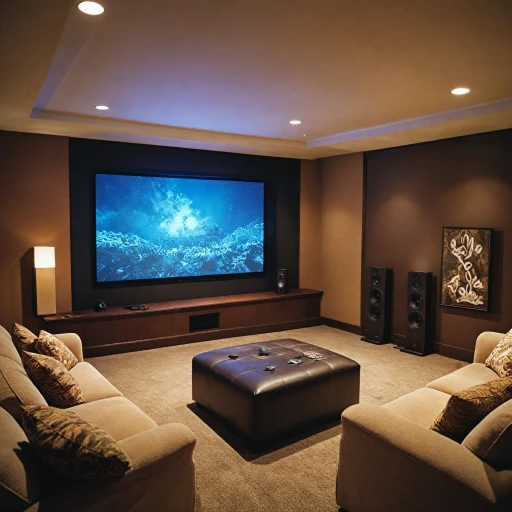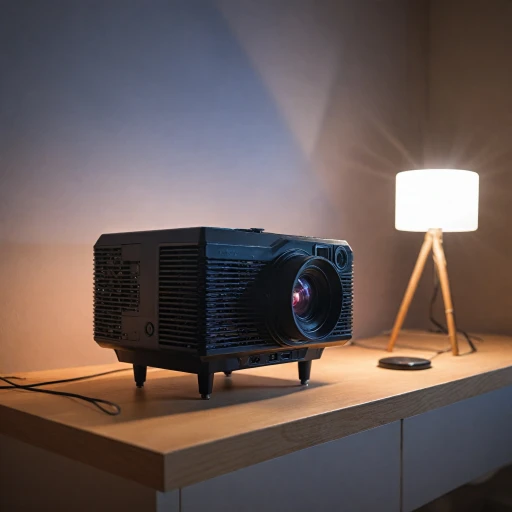
Understanding Brightness Levels
Evaluating Brightness for Optimal Viewing
When selecting a home theater projector, understanding the importance of brightness levels is crucial. Measuring brightness in lumens, this factor significantly influences the quality of the projected image. The higher the lumens rating, the brighter the projector, and this is especially important if your home theater isn't equipped with blackout curtains or if you're planning to use the projector in a bright room or outdoors.
Brightness is a critical consideration because it affects how vibrant and clear the color and image quality appear on screen. For indoor settings with controlled lighting, a projector with 1,500 to 2,500 lumens might suffice. However, for spaces with ambient light, like living rooms or for outdoor projectors, considering units with higher brightness, such as 3,000 to 4,000 lumens, could be a game-changer. High brightness units ensure the best possible viewing experience despite ambient conditions.
Understanding projector lighting for home theaters, whether it's a laser projector or lamp-based, can significantly enhance your viewing comfort. Laser projectors, for instance, offer consistent brightness over time, reducing maintenance compared to traditional lamps.
Other factors like resolution and image quality can intersect with brightness considerations. Projectors from brands such as Epson and Anker Nebula typically offer options with full HD resolution and high brightness, addressing both vivid color accuracy and sharp image rendering. Analyzing customer reviews on platforms like Amazon can also provide insights into how different projectors perform in varied lighting conditions.
Room Size and Ambient Light Considerations
Considering Your Room's Lighting Impact
When selecting the right projector for your home theater, understanding how room size and ambient light influence your choice is crucial. Brightness levels, often measured in lumens or ANSI lumens, will determine how well your projector combats ambient light. The higher the lumens, the better the projector can handle bright rooms or outdoor settings.
For rooms with substantial ambient light, opting for a high brightness projector becomes essential. Generally, a projector with at least 2,000 ANSI lumens is ideal for moderate ambient lighting conditions. In spaces where you can control the lighting, such as a dedicated theater room, you might prioritize other image quality aspects like resolution or color accuracy over sheer brightness.
Screen size also plays a role when considering the illumination required from your projector. Larger screens necessitate more powerful projectors, particularly in bright environments. If you're using an ultra short throw projector or a mini projector for a compact space with controlled lighting, a lower lumen projector might suffice without compromising image quality.
For those who enjoy movie nights in different settings, such as outdoor projector screenings, a portable projector like the Anker Nebula series offers flexibility and convenience. These projectors often come with essential features to ensure a bright and clear image even outdoors.
To dive deeper into how different lighting impacts your projector selection, check out this guide on understanding projection lighting for home theaters. Choosing wisely ensures you enjoy the best possible viewing experience, whether indoors or outdoors, day or night.
Resolution and Image Quality
Decoding the Clarity: Resolution and Image Quality
When creating a home theater experience, the projector's resolution and image quality cannot be overlooked. Whether you're choosing an outdoor projector for backyard movie nights or setting up a cozy indoor cinema, understanding the role of resolution and image quality is paramount. Projectors come in various resolutions, with the common ones being 720p, 1080p Full HD, and 4K Ultra HD. Higher resolution projectors, such as 4K, offer more detail, providing a crisper and more vibrant picture. If you're a fan of high-definition movies or gaming, opting for a higher resolution is beneficial. Additionally, consider the aspect ratio to ensure compatibility with your media source. Most home theater projectors support a 16:9 aspect ratio, which is ideal for widescreen content, while other aspect ratios may suit specific needs. Image quality is also affected by brightness levels and ambient light. Projectors with higher lumens, such as those over 3000 ANSI lumens, can project clearer images even in rooms with ambient light. Laser projectors, like the Nebula Mars series, are known for maintaining image integrity in various lighting conditions. Color accuracy and contrast ratio play a role too. A projector with better color reproduction can enhance the viewing experience, making movies and shows appear more lifelike. Brands like Epson have models that excel in color accuracy, ensuring your screen reflects the director's vision. For those who prefer versatility, some portable projectors offer impressive image quality with ease of transport. The Anker Nebula series, including the Nebula Capsule, is designed for those who love the convenience of setting up a theater wherever they go. Ultimately, the best projector lies in one that aligns with your viewing habits and room setup. For more insights on why a projector might be the superior choice over traditional TVs in your home theater setup, considering a projector could provide a new perspective.Lamp Life and Maintenance
Prioritizing Lamp Life and Maintenance
When considering a projector for your home theater, the longevity of the lamp and the ease of maintenance are crucial factors that can affect your overall viewing experience and long-term investment. Lamp life, measured in hours, determines how long your projector can operate before the brightness decreases or a replacement is needed. Most projectors offer anywhere from 2000 to 5000 hours of lamp life, but high-end models with LED or laser technology often extend this to 20,000 hours or more.
Maintenance needs vary between projector types. Traditional lamp-based projectors may require more frequent bulb replacements, whereas laser projectors are often low-maintenance with no need for bulb swaps, making them an appealing option for users who prioritize minimal upkeep. With advancements in technology, modern projectors from brands like Epson and Anker Nebula offer designs that minimize dust build-up and include easy access to filters, which can reduce maintenance needs significantly.
Projectors with a high ANSI lumens rating often have robust lamps, adding to their durability and lifespan. It's vital, whether using a projector in a bright room or outdoor setting, to choose a model that balances high brightness with a sustainable lamp life.
To further enhance the image quality and efficiency of your home theater setup, it is advisable to periodically clean the projector and ensure it is kept in a dust-free environment. Reading customer reviews and jumping into details on models that highlight longevity and user-friendly maintenance can guide you to the best projector choice for your needs.
Connectivity and Compatibility
Exploring Connections and System Compatibility
When it comes to choosing a home theater projector, it's essential to consider its connectivity and compatibility with your existing devices. The right projector should seamlessly integrate with your current setup, accommodating the myriad of gadgets you may use, from gaming consoles to streaming devices. Today's projectors, including the popular brands like Epson and portable options like Anker Nebula, offer a range of ports and wireless options. Here are some of the key connectivity features you may want to look for:- HDMI Ports: Ensure the projector has enough HDMI ports, as it remains the most common interface for high-definition video and audio.
- USB Ports: Useful for plugging in external storage devices or streaming sticks.
- Wi-Fi and Bluetooth: Wireless connectivity options allow for seamless streaming and connecting with speakers without cluttering wires.
- Audio Outputs: If you're aiming for immersive sound quality, check whether the projector supports optical or auxiliary audio outputs for external sound systems.
Budget and Brand Options
Financial Considerations and Available Brands
When planning to invest in a home theater projector, understanding your budget is crucial. The market offers a wide range of options that cater to various price points, each delivering different features and specifications. Brands like Epson, Anker Nebula, and others provide an array of choices, from high-performing laser projectors to more budget-friendly mini projectors. Your choice will significantly impact the brightness, resolution, and contrast ratio you can expect in your setup.
In determining which projector fits into your budget, consider how the projector's financial investment aligns with your room's size and the ambient light conditions. Higher brightness levels, generally measured in ANSI lumens, often translate to higher costs, but they are essential in bright rooms or outdoor settings where ambient light is a factor.
Popular models such as the Nebula Capsule and the Nebula Mars offer portable projector solutions with varying levels of brightness and resolution, making them suitable for those looking for versatility and ease of use. Customer reviews on retailer platforms like Amazon can provide insights into real-world performance and help you determine the best fit for your needs.
Additionally, consider the long-term costs associated with lamp life and possible maintenance, as outlined in previous sections. Projectors with laser light sources often come with a higher initial price tag but usually require less maintenance and provide better longevity, potentially offering savings in the long run.
Ultimately, balancing your needs against your budget and thoroughly researching available brands and models will result in a more satisfying home theater experience, ensuring you choose the best option for both your wallet and your viewing pleasure.

